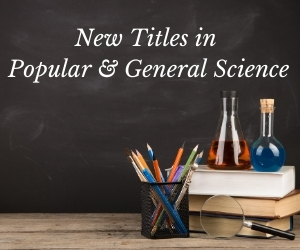System Upgrade on Tue, May 28th, 2024 at 2am (EDT)
Existing users will be able to log into the site and access content. However, E-commerce and registration of new users may not be available for up to 12 hours.For online purchase, please visit us again. Contact us at customercare@wspc.com for any enquiries.
With a seeming increase in the number of high-profile cases of research misconduct, there is a need for promoting and upholding the principles for the responsible conduct of research. At the 3rd World Conference on Research Integrity, convened in Montréal in 2013, vital issues relating to ethics and behavior in research environments were discussed at length. This book captures the major content and discussions arising from the conference. The Montréal Conference, like the previous conferences, attracted a diverse group of delegates and speakers, including government and institutional leaders, policy makers, journal editors, officials of research funding agencies, scientists and other researchers, students and postdoctoral fellows, representatives of academic societies and academies, and those responsible for compliance and regulation, as well as many who are engaged in doing empirical research on topics related to research integrity.
The aim of this book is to share the ideas emerging from the rich discussion at the conference with scholars and policymakers around the world. It covers the main topics that are today seen as vital to decision making about responsible research. The book also sets the stage for the 4th World Conference on Research Integrity, which will be held in Brazil in mid-2015.
This book and the prior World Conference publication, Promoting Research Integrity in a Global Environment , represent the largest ongoing global discussion of issues relating to integrity in research. It provides its readers with the opportunity to learn more about and eventually engage these issues locally or globally with colleagues.
Sample Chapter(s)
Chapter 1: Responsible Conduct of Research: A Canadian Approach (67 KB)
Contents:
- About the Editors
- Preface
- Montreal Statement
- Keynote Address
- Current and Future Challenges for those Promoting Research Integrity (Michael J G Farthing)
- The Diversity of National Approaches to Research Integrity:
- Introduction (Tony Mayer)
- Responsible Conduct of Research: A Canadian Approach (Susan V Zimmerman)
- With Joined Forces for Research Integrity in Europe: European Network of Research Integrity Offices (Nicole Foeger)
- Research Ethics and Research Integrity at the European Research Council (Alessandra Ferrari)
- Building a National Research Integrity Framework: Ireland's Experience (Maura Hiney)
- Impact in Denmark of the Singapore Statement on Research Integrity and the European Code of Conduct for Research Integrity (Nils Axelsen)
- Professional Networks Contributing to Research Integrity and Ethics: From Cooperation to Innovation (Snežana Krstić)
- Update on Developments in Australia (Timothy M Dyke)
- Principles and Responsibilities:
- Introduction (Sabine Kleinert)
- Essentials of Determining Authorship (Ashima Anand)
- Research Conflict of Interest: Flaws in Professional Codes of Ethics (Charles Marsan and Maude Laliberté)
- Error and Fraud: A Sometimes Fuzzy Frontier (Jean-Pierre Alix)
- Bearing Crosses: A Case Study in Cross-Cultural, Cross-Disciplinary, Cross-Border Higher Degree by Research Supervision (Karolyn White and Kristina Everett)
- Technology and Commitment (Helene Ingierd)
- Sharing of Data from Clinical Trials and Research Integrity (Karmela Krleza-Jeric)
- Responding to Research Misconduct:
- Introduction (Sabine Kleinert)
- Managing Research Misconduct Investigations: The Top 10 Pitfalls and How to Avoid Them (Kerry Rehn)
- Research Misconduct: Suggested Remedies from a Psychiatrist's Perspective (Donald S Kornfeld)
- Working against Plagiarism (Hallvard J Fossheim)
- Plagiarism as Violation of Law in Norway: On Inappropriate Juridification of Research Ethics (Ragnvald Kalleberg)
- Research Integrity and Solid Data Management: The Dutch Experience (Kees Schuyt)
- What Lessons Can We Learn from the Stapel Case? (Pieter J D Drenth)
- Fostering Integrity in Research:
- Introduction (Melissa S Anderson)
- Fostering Scientific Integrity and Assessing the Hidden Curriculum (Péter Kakuk)
- Software for Academic Integrity: The Role of Research Codes, Statements and Declarations in Research Ethics and Integrity (Laetus O K Lategan)
- Cooperation between Journals, Research Institutions and Funders over Research and Publication Integrity Cases: Defining the Challenges (Elizabeth Wager and Sabine Kleinert)
- Blowing the Oboe, Not the Whistle: Creative Accounts about Saving Science from the Unethical (Joan E Sieber)
- How Physicians Understand Research Ethics Problems in Russia (Leyla Akhmadeeva, Gulnara Rayanova and Boris Veytsman)
- Developing Institutional Monitoring Protocols for Humanities and Social Science Research in Taiwan (Shu-min Huang)
- Responsible Conduct of Research Training:
- Introduction (Nicholas H Steneck)
- RCR Training in Peking University Health Science Center (Yali Cong)
- Reflections on Teaching RCR at an US Engineering Institution (Jason Borenstein)
- Research Integrity Management Framework for Joint PhD and Cotutelle Candidates at Macquarie University (Ren Yi)
- Learning Theory Applied to Responsible Conduct of Research (RCR) Instructional Design: A Case Study Assessing Research Integrity Training for Cross-Sector Science Trainees (Camille Nebeker)
- Teaching Good Scientific Practice and Curricular Development in Germany (Helga Nolte, Michael Gommel and Gerlinde Sponholz)
- The University as a Learning Environment for Research Ethics (Erika Löfström and Minka Rissanen)
- Integrity and Society:
- Introduction (Nicholas H Steneck)
- Intersection of Research Integrity with Social Responsibility (Mark S Frankel)
- Societal Consideration as Willingness to Dialogue — A Commentary to Singapore Statement Point N 14 (Daniele Fanelli, Leiv K Sydnes, Howard Ducharme, Merry Bullock, Gary Comstock, Carthage Smith, Inmaculada de Melo-Martin, Susan V Zimmerman and Mark S Frankel)
- Where Research Integrity and Scientific Reporting Converge, Animal Welfare Stands to Benefit (Nicola J Osborne)
- Geoethics: A Challenge for Research Integrity in Geosciences (Silvia Peppoloni, Peter Bobrowsky and Giuseppe Di Capua)
- Principles for Building Public/Private Partnerships to Benefit Public Health (Sylvia Rowe)
- Research Integrity and Governance in Contentious Policy Arenas: An Exploration of Coal Seam Gas Debates in Australia (Naomi Smith Devetak)
Readership: Researchers, research administrators from funding agencies and similar bodies, research organisations performing research, scientists, universities, policy makers and general public.























